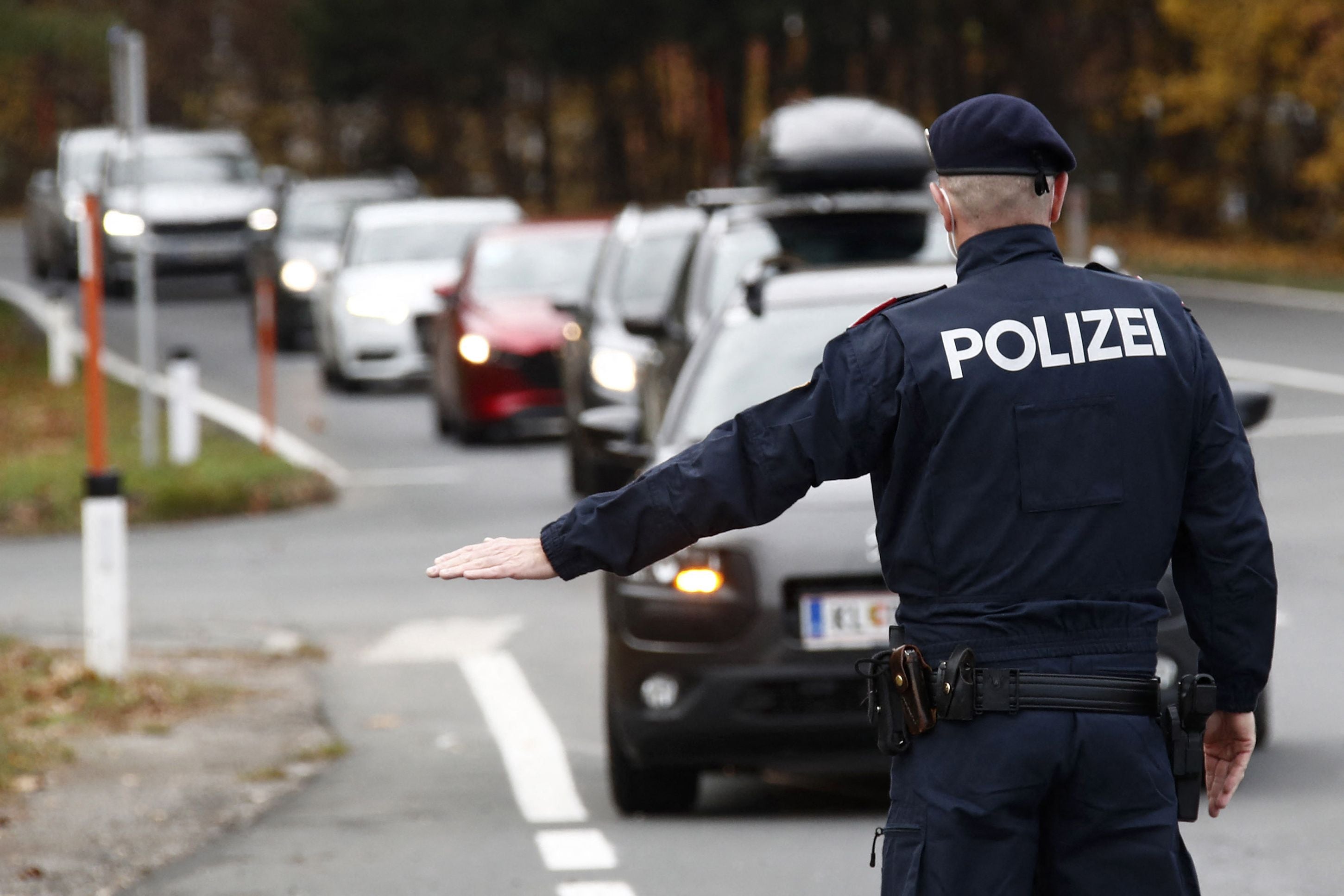Austria enters lockdown for the unvaccinated as Covid cases surge
Nation has one of the lowest coronavirus vaccination rates in western Europe

Austria entered a lockdown for people not fully vaccinated against the coronavirus on Monday, with reinforced police checks to ensure compliance as the country struggles with a surge of Covid-19 cases.
The government said that around two million people in the nation of roughly nine million are now only allowed to leave home for a limited number of reasons such as travelling to work or shopping for essentials.
The aim is to counter a surge in infections to record levels fuelled by a full vaccination rate of only around 65% of the population, one of the lowest in western Europe.
Chancellor Alexander Schallenberg announced the move at a news conference on Sunday as the country faces growing strain on its intensive care units.
“We are not taking this step lightly but it is necessary,” Mr Schallenberg said of the new restrictions.
“In reality we have told one third of the population: you will not leave your apartment anymore apart from for certain reasons. That is a massive reduction in contacts between the vaccinated and the unvaccinated,” Mr Schallenberg said.
Many Austrians are sceptical about vaccines, a view encouraged by the far-right Freedom Party, the third biggest in parliament.
The leader of opposition party, Herbert Kickl, vowed to combat the new restrictions by all available parliamentary and legal means. He said in a statement that “2 million people are being practically imprisoned without having done anything wrong.”
Hours later, Mr Kickl announced on Facebook that he had tested positive for Covid-19 and must self-isolate for 14 days, meaning he will not be able to attend a protest in Vienna planned for Saturday.
Austria has one of the highest coronavirus infection rates in Europe with 815 per 100,000 people infected. Germany is also discussing tightening restrictions and has already classified Austria as a high risk area meaning people arriving from there will have to go into quarantine - a blow to Austria’s winter tourism industry which is recovering from the pandemic still.
Elsewhere in Europe, the number of Covid-19 patients in Dutch hospitals increased to around 2,000 on Monday, including almost 400 in intensive care, reaching the highest level since May.
The new Austrian measures will last for 10 days and will not apply to children under 12-years-old or people who have recently recovered from coronavirus, health minister Wolfgang Mueckstein said.
Those under the measures will be banned from hotels, restaurants, theatres and ski lifts in the new restrictions which will be some of the strictest in Europe.
Many officials, including in Mr Schallenberg’s conservative party and the police, have expressed doubts this lockdown can be properly enforced as it applies to only part of the population. Interior minister Karl Nehammer said there will be thorough police checks.
Yet there are widespread doubts, including among Schallenberg’s conservatives and the police, about whether this lockdown can be properly enforced.
It can be hard to verify, for example, whether an unvaccinated person is on their way to work, which is allowed, or going to shop for non-essential items, which is not.
Targeted measures have recently been introduced in Australia, where 83 per cent of people aged 16-year-old and above have been fully inoculated.
Some states have mandated vaccinations for some occupations and barred the unvaccinated from activities such as dining out, leading to demonstrations.
Singapore, where 85 per cent of the population has been fully vaccinated, has said those who remained unvaccinated by choice would have to foot their medical bills from next month.
Join our commenting forum
Join thought-provoking conversations, follow other Independent readers and see their replies
Comments
Bookmark popover
Removed from bookmarks